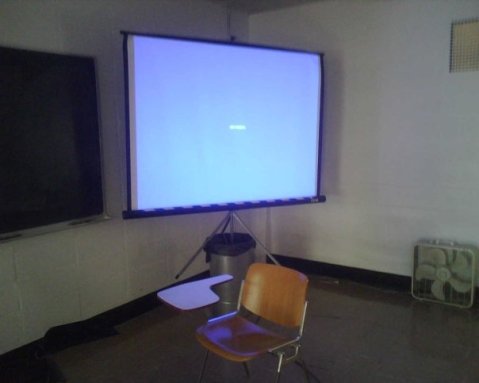
Ghetto Cooper
Random Observation/Comment #129: It’s difficult to publish entries when you’ve spent 4 days away from your laptop, and 70% of that awake-time in an inebriated state. Work hard. Play hard.
I summarized the majority of 1.5 years of torturous brain-fug work in a little more than an hour. I didn’t necessarily rehearse this presentation – I already knew what I was talking about after spending hours (I want to say something like the ‘decade’ version of hours, which exists in Chinese as ‘see suns,’ which I think is 3 hours – it just seems like the emphasis would make my writing much more entertaining, although this explanation is interesting as well) writing those 90 slides (Yes, it was 90). For some reason, I was never very good at memorizing lines and acting them with gravitas or even much fervor. Every carefully phrased sentence written in my 20 pages of “talking points” was completely ignored – I decided to just refer to the intentional animations for different topics. In fact, I used each of the slides as a simple bullet point reminder of what I should mention within my stream of random commentary.
I say random commentary, but what’s a little more appropriate, is background song. For the most part, the audience is concentrating on reading the slides and trying to follow the overall story. The words that actually came out of my mouth didn’t really need to make that much sense. I think it would be fine if I just ran the slides behind me while I sang a song and practiced Thai Chi (I choose Thai Chi because after 2 minutes, you’ll probably rather be looking at the slides). The flashy animations and overall flow of your inflections are so much more important than your actual words. Once you get famous, I’m sure there will be much more criticism, but I do not hope to enter this type of world anytime soon.
I know this wasn’t the best idea for a Master’s presentation, but I basically winged it*. I went through a few practice runs, but it really didn’t help that much. The hour-long speech was just too much to memorize. Instead of seeing the entire presentation, I split it up in my mind to talking about smaller topics. The slides were used to indicate which topic I should discuss next. By thinking about this as 10 smaller presentations squished together, it became much less scary. I stayed on topic and spent the extra time making sure I knew all of the cues.
Throughout undergraduate, I’ve learned that the level of success for an engineering presentation is the amount of knowledge your audience absorbs by the end. If I leave the presentation intellectually stimulated, I feel like my time was not wasted. I focused the creation of my presentation surrounding this main idea. In order to do this, I needed to bring an “earthier,” realistic aspect to the points I was making. Since it was a Master’s presentation, it was definitely technical. But I broke it up such that the theory and experiments related to more real-world examples. For example, if I were explaining elastic collisions in a transfer of momentum, I would use the example of playing pool where we focus on the resulting action from a cue ball colliding with another ball.
For the most part, presentations are used to sell a product. When you’re an engineer asking for more funding, you’re trying to impress investors with the practical usage of your topic. When you’re presenting on financial road shows, you’re basically selling the services of the IPO to potential stockholders. Given these examples, it may seem like the following is true: When you’re a graduate student presenting to professors, you’re selling the knowledge and hard work put into your thesis.
In reality, your advisor usually knows how much work you’ve put into your graduate work, so the presentation itself is really not for him; it’s actually just a formality. The success of the presentation is gauged by the reaction from everyone else in the room. The advisor just wants to see that you’ve understood the essence of engineering – the process of filtering research, conducting experiments, drawing conclusions, and (the most important, but usually omitted) transfer of results back into the community.
One team of researchers cannot expect to cure cancer. Instead, they focus on specific procedures that may propel other research in less ambitious areas to further the field. This concept has been available and actively pursued for many decades. The importance is the transfer of knowledge. Engineering schools should further emphasize writing skills to make sure other people don’t waste time picking apart poorly written papers. I found most of my frustration is the lack of a uniform agreement in units or notation to represent the basic ideas. Well, I guess that’s why they call it research.
~See Lemons Finish
* Wing(-ing/-ed) it. Verb. The act of entering a task relying on a keener use of bullshit skills, rather than a practiced set of logical answers. This does not necessarily imply being unprepared, but it does indicate a level of hubris or “oh, fug-it” nature.


